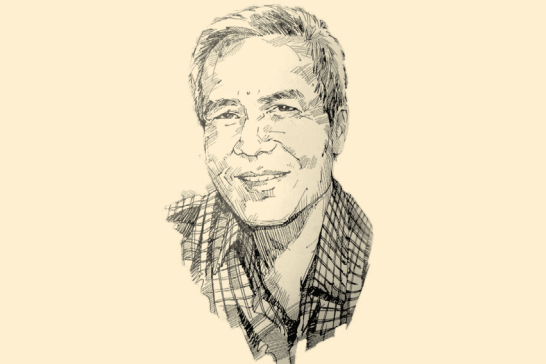
Dec 12, 2018 | Events, News
On 12 December 2018, the ICJ co-organized a panel discussion at Bangkok Art and Culture Center (BACC) in Thailand marking the 6th anniversary of the evident enforced disappearance of prominent Lao civil society leader Sombath Somphone.
The panel discussion was co-organized with the International Federation for Human Rights (FIDH), ASEAN Parliamentarians for Human Rights (APHR) and Forum Asia.
On 15 December 2012, Closed Circuit Television (CCTV) footage taken by police cameras near a police checkpoint in Vientiane, Lao PDR, appeared to show that Sombath Somphone was abducted at the checkpoint by, or with the consent or acquiescence of, agents of the State. He has not been seen since.
Six years after his abduction, Laotian authorities have repeatedly failed to provide meaningful information as to his fate or whereabouts, or conduct an independent, impartial and effective investigation towards determining his fate. The last police report on his case was issued on 8 June 2013.
In light of the 6th anniversary, the panel discussion considered what further steps could be taken to continue advocacy on his case and spoke about regional implications and responses.
The panelists were:
- Ng Shui-Meng, Wife of Sombath Somphone;
- Edmund Bon, Lawyer, Malaysia’s Representative to the ASEAN Intergovernmental Commission on Human Rights;
- Premrudee Daoroung, Project SEVANA’s South-East Asia Coordinator;
- Charles Santiago, Malaysian Member of Parliament.
The panel was moderated by the Andrea Giorgetta from the International Federation for Human Rights (FIDH).
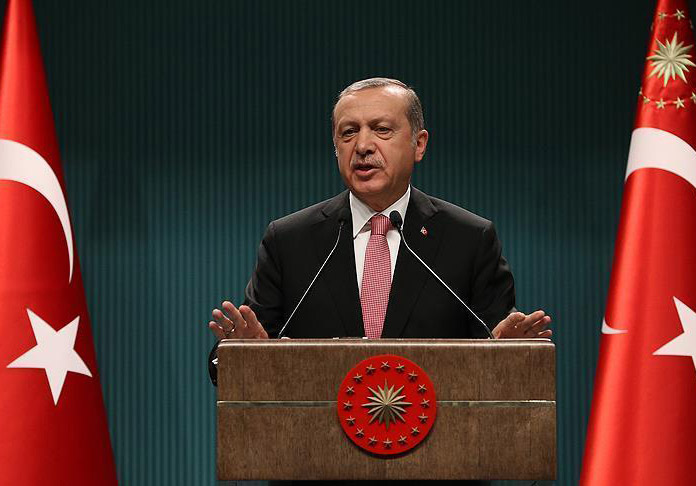
Oct 23, 2018 | News
In light of new information released by Turkish President Recep Tayyip Erdogan about the apparent murder of prominent Saudi journalist Jamal Khashoggi, the Turkish government should seek cooperation from independent and impartial international investigators into the apparent extrajudicial killing of prominent Saudi journalist Jamal Khashoggi in the Saudi Arabian Consulate in Istanbul, the ICJ urged today.
Turkish President Recep Tayyib Erdogan today told the Turkish Parliament that investigations suggested that Saudi officials had planned to kill Khashoggi and he called for all those responsible for the killing to be punished regardless of rank.
“Given the highly political nature of this case and its emblematic impact for journalists and dissidents around the world, Turkey should work with the United Nations to establish a special independent mechanism to carry out the investigation with a view to identifying the perpetrators and prescribing recommendations for appropriate accountability measures,” said Said Benarbia, ICJ’s MENA Programme Director.
“Alternatively, the investigation should be conducted by competent Turkish authorities, given that Turkey already has jurisdiction and an obligation to carry out an investigation,” he added.
Investigations by Turkey to date suggest that the crime was planned, at least in part, in Saudi Arabia, and that perpetrators, evidence and witnesses are located in at least two countries.
Turkish Foreign Minister, Mevlut Cavusoglu, stated today that Turkey is ready to cooperate with an international investigation into Jamal Khashoggi’s death.
“Given the gravity of the crime and the fact that evidence and perpetrators are located outside Turkey, Saudi Arabia and other States should cooperate with an international investigation and waive any diplomatic protections and immunities that may apply to State officials and premises. They should also hand over all forensic, video, audio and other evidence, facilitate investigators’ access to State territory and witnesses, including State officials, and provide the necessary support to locate, retrieve and identify other evidence such as human remains and trace evidence and to carry out an autopsy on Khashoggi’s remains,” Benarbia said.
The ICJ dismissed statements by Saudi Arabia that it would carry out an independent, impartial investigation of the apparent murder.
On 20 October 2018, after initially denying any involvement in Jamal Khashoggi’s enforced disappearance, the Saudi Ministry of Foreign Affairs issued a statement claiming Khashoggi died when a “fight broke out” in discussions with Saudi officials at the consulate.
“Saudi Arabia has provided no evidence to support its incredible claim two weeks on that Jamal Khashoggi died after a fight broke out. Their investigation into his death lacks transparency and independence. Given Saudi Arabia’s past record in countenancing complete impunity for officials involved in serious human rights violations, it is reasonable to expect that this investigation and will result in a cover-up in which those most responsible avoid accountability,” Benarbia added.
Saudi Arabia’s repeated denials that it had any knowledge of the fate of Khashoggi, followed by its claims that “rogue” State operatives were responsible for his death, indicate that any Turkish investigation will be unlikely to elicit any meaningful cooperation from Saudi authorities.
“The denials, obfuscation and scapegoating by Saudi Arabia reveals a contempt for human rights that’s indicative of its modus operandi,” Benarbia said.
“Saudi authorities have repeatedly failed to carry out independent and impartial investigations into allegations that State officials have engaged in widespread arbitrary arrested and detention, torture and other ill-treatment and enforced disappearances, including of journalists, human rights defenders and critics of the government. Since Crown Prince Mohammad bin Salman was appointed in June 2017, repression of the exercise of human rights for political reasons has increased. Those convicted for exercising their lawful rights to freedom of expression, assembly and association face lengthy prison terms or the death penalty, after trials marred by fair trial rights violations,” he added.
Saudi Arabia-Khashoggi intl investigation-News-press releases-2018-ENG (full story with additional background, in PDF)
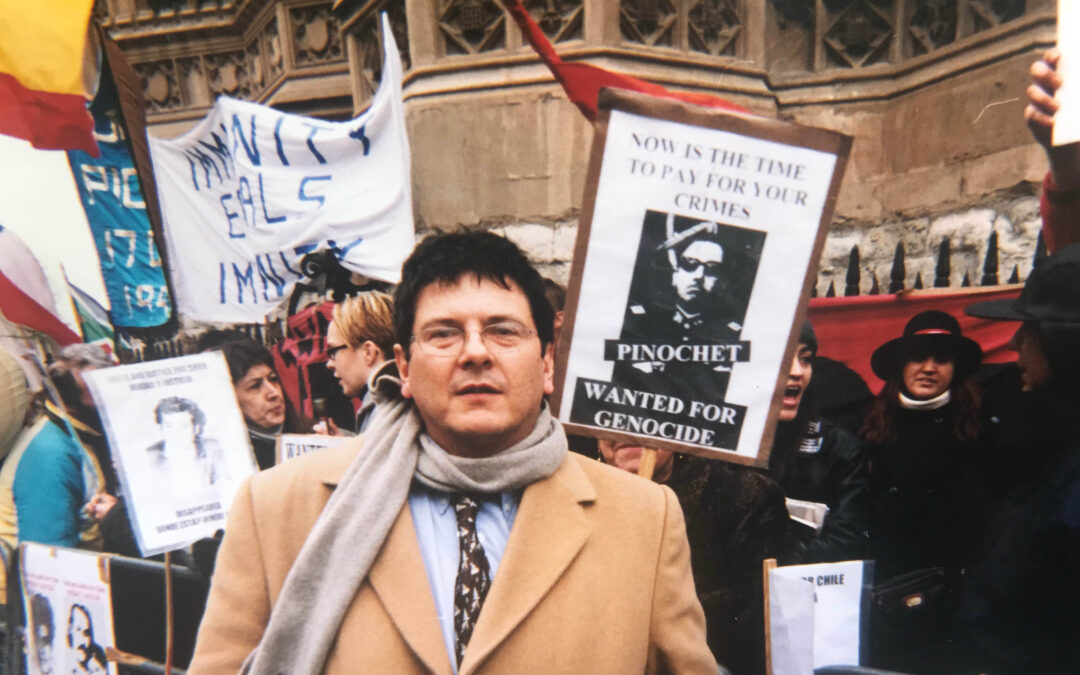
Sep 24, 2018 | Feature articles, News
On October 16, 1998, the former dictator of Chile Augusto Pinochet was arrested in London on a warrant from a Spanish judge. Reed Brody participated in the subsequent legal case.
Reed Brody went on to apply the “Pinochet precedent” in the landmark prosecution of the former dictator of Chad, Hissène Habré, who was convicted of crimes against humanity in Senegal in 2016.
He now works with victims of the former dictator of Gambia, Yahya Jammeh. The ICJ interviewed Brody about the Pinochet case and its legacy.
What was your role in the Pinochet case?
My role started when Pinochet was arrested in London. The case began long before that, of course, in the early years of Pinochet’s dictatorship when brave human rights activists documented each case of murder, and “disappearance.”
The ICJ worked with those advocates to produce a seminal 1974 report on those crimes, just six months after Pinochet’s coup. Shut out of Chile’s courts, even after the democratic transition of 1990, victims and their lawyers pursued a case against Pinochet in Spain under its “universal jurisdiction” law and when Pinochet traveled to London, Spanish Judge Baltasar Garzón requested and obtained his detention.
When Pinochet challenged his arrest in court claiming immunity as a former head of state, I went to London for Human Rights Watch, and we and Amnesty International were granted the right to intervene with teams of lawyers in the proceedings at the judicial committee of the House of Lords, then Britain’s highest court.
The Lords cited our research in rejecting Pinochet’s immunity.
You famously described the Lords’ Pinochet decision as a “wake-up call” to tyrants everywhere. Looking back, do you think it was?
Actually no, I think one would be hard pressed to discern a change in the behavior of dictators. Mugabe didn’t quake in his boots, Saddam didn’t clean up his act.
The more important and more lasting effect of the case was to give hope to other victims and activists. When the Lords ruled that Pinochet could be arrested anywhere in the world despite his status as a former head of state, the movement was in effervescence.
As a human rights lawyer, I was used to being legally and morally right, but still losing. In the Pinochet case, not only did we win, but we upheld the detention of one of the world’s most iconic dictators.
The Pinochet case inspired victims of abuse in country after country, particularly in Latin America, to challenge the transitional arrangements of the 1980s and 1990s, which allowed the perpetrators of atrocities to go unpunished and, often, to remain in power.
These temporary accommodations with the ancien régime didn’t extinguish the victims’ thirst to bring their former tormentors to justice.
How did you go from Pinochet to Habré?
With Pinochet, we saw that universal jurisdiction could be used as an instrument to bring to book people who seemed out of the reach of justice.
Together with groups like Amnesty, the FIDH, and the ICJ (which wrote an important report on the Pinochet case and its lessons), we had meetings on who could be the “next Pinochet.”
That’s when Delphine Djiraibe of the Chadian Association for Human Rights asked us to help Habre’s victims bring him to justice in his Senegalese exile.
I was excited at the prospect of persuading a country in the Global South, Senegal, to exercise universal jurisdiction, because there was a developing paradigm of European courts prosecuting defendants from formerly colonized countries.
It took us 17 years, but Habré became the first prosecution ever of a former head of state using universal jurisdiction, and indeed the first universal jurisdiction trial in Africa.
1998 was a high water mark for international justice with the adoption of the ICC Rome Statute and Pinochet’s arrest. Neither the ICC nor universal jurisdiction have quite lived up to their expectations. Why?
International justice doesn’t operate in a vacuum, it’s conditioned by the global power structure. Each case, whether at the ICC level or the transnational level, is a product of the political forces which must be mobilized, or fended off, to allow a prosecution to proceed.
Those forces, particularly since September 11, 2001, have been hostile to human rights enforcement in general and to justice in particular. Universal jurisdiction has been subject to the same double standards as the ICC.
The Belgian and Spanish universal jurisdiction laws, which were the broadest in the world, were both repealed when they were used to investigate superpower actions.
But many of the most successful cases have been those in which the victims and their activist supporters have been the driving forces, have compiled the evidence themselves, built an advocacy coalition which placed the victims and their stories at the center of the justice struggle and helped create the political will in the forum state.
I’m thinking not just of Habré, but the genocide prosecution in Guatemala of the former dictator Efraín Ríos Montt, the case in Haiti of “President for Life,” Jean-Claude “Baby Doc” Duvalier, the Liberian cases brought around the world by Civitas Maxima and its partners, the Swiss cases initiated by TRIAL International, and the Syria litigation by ECCHR and others.
These cases were brought before domestic courts either of the country in which the atrocities took place (Guatemala, Haiti) or of foreign countries based on universal jurisdiction, rather than before international courts.
Most of these cases took advantage of legal regimes which allowed victims directly to participate in the prosecutions as “parties civiles,” or “acusación particular” rather than play passive or secondary roles in cases prosecuted solely by state or international officials.
How do victim-driven prosecutions look different than institutional cases?
When it’s the victims and their allies who get the cases before a court, who gather the evidence, and who have formal standing as parties, the trials are more likely to live up to their expectations.
In the Rios Montt case, for instance, the Asociación Para la Justicia y Reconciliacion (AJR) and the Centro Para la Acción Legal en Derechos Humanos (CALDH) mobilized the victims, developed the evidence, defined the narrative and, essentially, determined the outlines of the case and chose the witnesses who would testify for the prosecution.
In the Habré case, we spent 13 years building the dossier, interviewing hundreds of victims and former officials and uncovering regime police files. The victims’ coalition always insisted that any trial include crimes committed against each of Chad’s victimized ethnic groups, and that is exactly was happened.
In contrast, a distant prosecutor, disconnected from national narratives and inherently not accountable to the victims or civil society, can be tempted to narrowly tailor prosecutions in the hopes of securing a conviction or avoiding political resistance.
This was the case with the ICC in the Democratic Republic of the Congo, for instance, where, as Pascal Kambale has persuasively argued, it betrayed the victims’ hopes.
Millions of civilians died in the DRC and Luis Moreno Ocampo only went after two local warlords. I think the current prosecutor is paying more attention to local realities.
The inspiration from victim-driven cases is also greater, and they are to some degree replicable. As Naomi Roht-Arriaza has written, these cases “stirred imaginations and opened possibilities precisely because they seemed decentralized, less controllable by state interests, more, if you will, acts of imagination.”
When I showed Chadian victims video clips of the Ríos Montt trial, they saw in those images exactly what they were trying to do.
Just as the Chadians came to us in the Habré case seeking to do what Pinochet’s victims had done, our hope in getting the Habré case to trial was that other survivors would be inspired by what Habre’s victims had done and say, “you see these people, they fought for justice and never gave up. We can do that too.”
And indeed, Liberian victims and Gambian victims have patterned their campaigns for justice on what Habre’s victims did. So, the Pinochet case continues to be an inspiration.
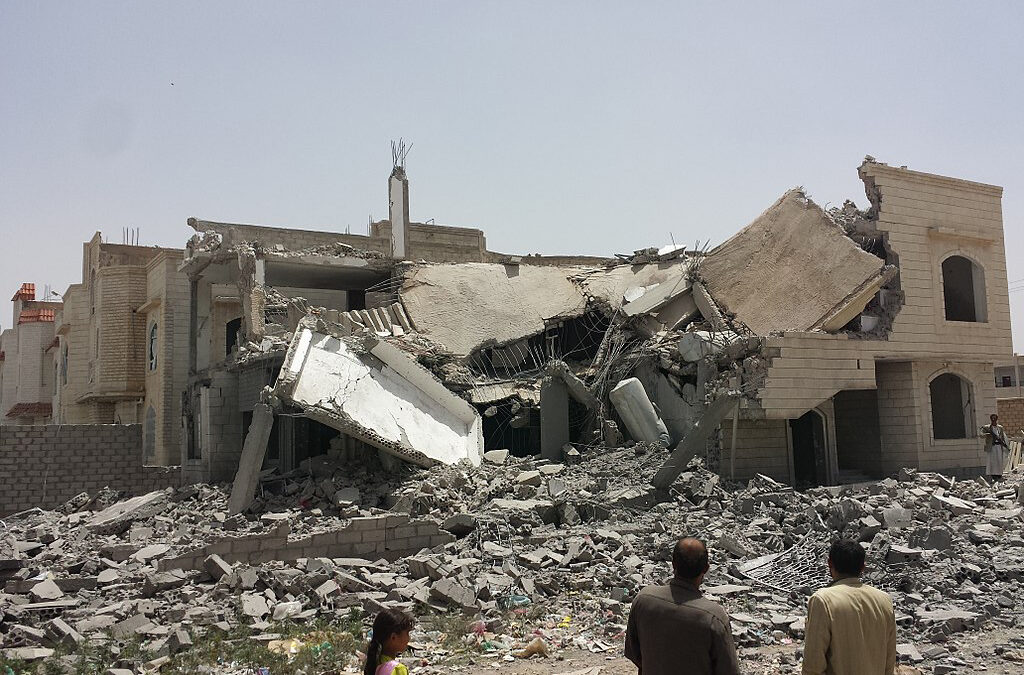
Jul 24, 2018 | Advocacy, Analysis briefs, News
In a briefing paper published today, the ICJ called on the parties to the conflict in Yemen to take immediate and effective measures to ensure the protection of the civilian population, including against human rights abuses and international humanitarian law violations.
Serious violations of international humanitarian law committed in Yemen include direct and indiscriminate attacks against civilians and the impediment of access to humanitarian relief of the civilian population.
Gross human rights violations and abuses include widespread instances of arbitrary arrest and detention, torture and ill-treatment, and enforced disappearances.
The ICJ has called for persons responsible for such violations to be held to account.
“All parties to the conflict in Yemen have acted in blatant disregard of the most basic rules of international humanitarian law and human rights law,” said Said Benarbia, ICJ MENA Director.
“The top priority is to end these violations and in particular to protect the civilian population,” he added.
In its briefing paper, the ICJ analyses international law violations committed in the conduct of hostilities and against persons deprived of their liberty.
The Saudi Arabia-led coalition and the Houthis are allegedly responsible for direct, indiscriminate or disproportionate attacks against civilians and civilian objects, including local markets, food storage sites, water installations and medical facilities.
The United Arab Emirates, the internationally recognized government of Yemen and the Houthis have allegedly engaged in arbitrary arrest and detention, torture and ill-treatment, and enforced disappearances.
The ICJ briefing paper also examines the potential legal implications of the blockade imposed by the Saudi Arabia-led coalition on Yemen and the sieges laid by the Houthis against several towns and localities, which impede the civilian population to access humanitarian relief.
The ICJ briefing paper further assesses the potential responsibility of third States for transferring arms to the parties to the conflict.
Under numerous instruments, including the Arms Trade Treaty, States are prohibited from selling arms to the parties to an armed conflict whenever a risk exists that the end-user could commit international law violations.
Arms transfers may even engage the exporting States’ international responsibility for aiding or assisting in the commission of such violations.
“Victims must have access to effective legal remedies and be provided with adequate reparation,” Benarbia said.
“The international community must state loud and clear that impunity is not an option. The Security Council should refer the situation in Yemen to the International Criminal Court and third States should consider, where feasible, the exercise of universal jurisdiction to prosecute relevant crimes under international law,” he added.
Contact
Vito Todeschini, Associate Legal Adviser, ICJ Middle East and North Africa Programme, t: +216-71-962-287; e: vito.todeschini(a)icj.org
Said Benarbia, Director of the ICJ Middle East and North Africa Programme, t: +41-22-979-3817; e: said.benarbia(a)icj.org
Yemen-War briefing-News-web story-2018-ENG (full story with background information, English, PDF)
Yemen-War impact on populations-Advocacy-Analysis Brief-2018-ENG (Analysis Brief in English, PDF)
Yemen-War briefing-News-web story-2018-ARA (full story with background information, Arabic, PDF)
Yemen-War impact on populations-Advocacy-Analysis Brief-2018-ARA (Analysis Brief in Arabic, PDF)
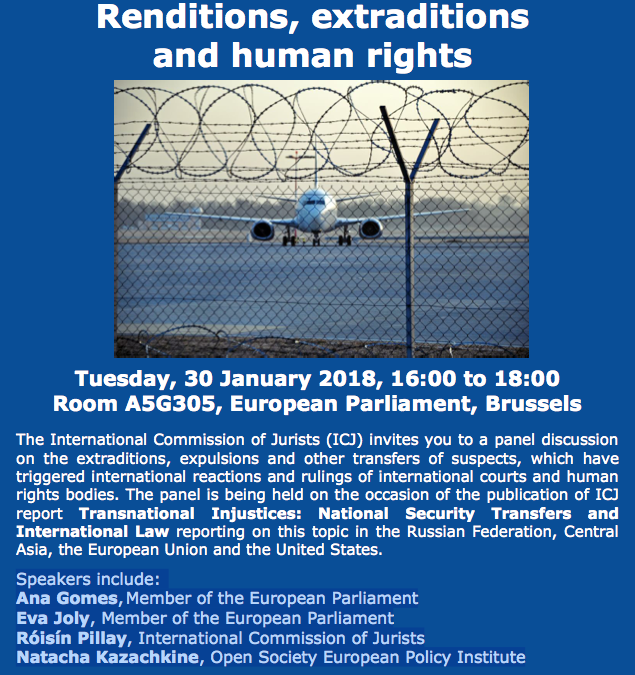
Jan 30, 2018 | Agendas, Events
The ICJ invites you to an event to discuss challenges in prevention of, and accountability for, violations of human rights in renditions and other transfers of suspects, including through past European complicity in US-led renditions, and in ongoing transfers of suspects in the CIS region.
Join us for a discussion marking the EU launch of the International Commission of Jurists’ report, Transnational Injustices: National Security Transfers and International Law. The event is kindly hosted by Ana Gomez and Eva Joly, MEPs.
Panelists will discuss the ongoing practice of states unlawfully rendering people accused of terrorism, accountability for violations of human rights in past renditions, and how the EU institutions and EU Member States should address these.
When: Tuesday 30 January 16.00 – 18.00
Where: Room A5G305, European Parliament, Brussels
RSVP to: anamaria.gomes@europarl.europa.eu
Speakers include:
- Ana Gomes, Member of the European Parliament
- Eva Joly, Member of the European Parliament
- Róisín Pillay, International Commission of Jurists
- Natacha Kazachkine, Open Society European Policy Institute
A flyer for this event is available in PDF format by clicking here.









